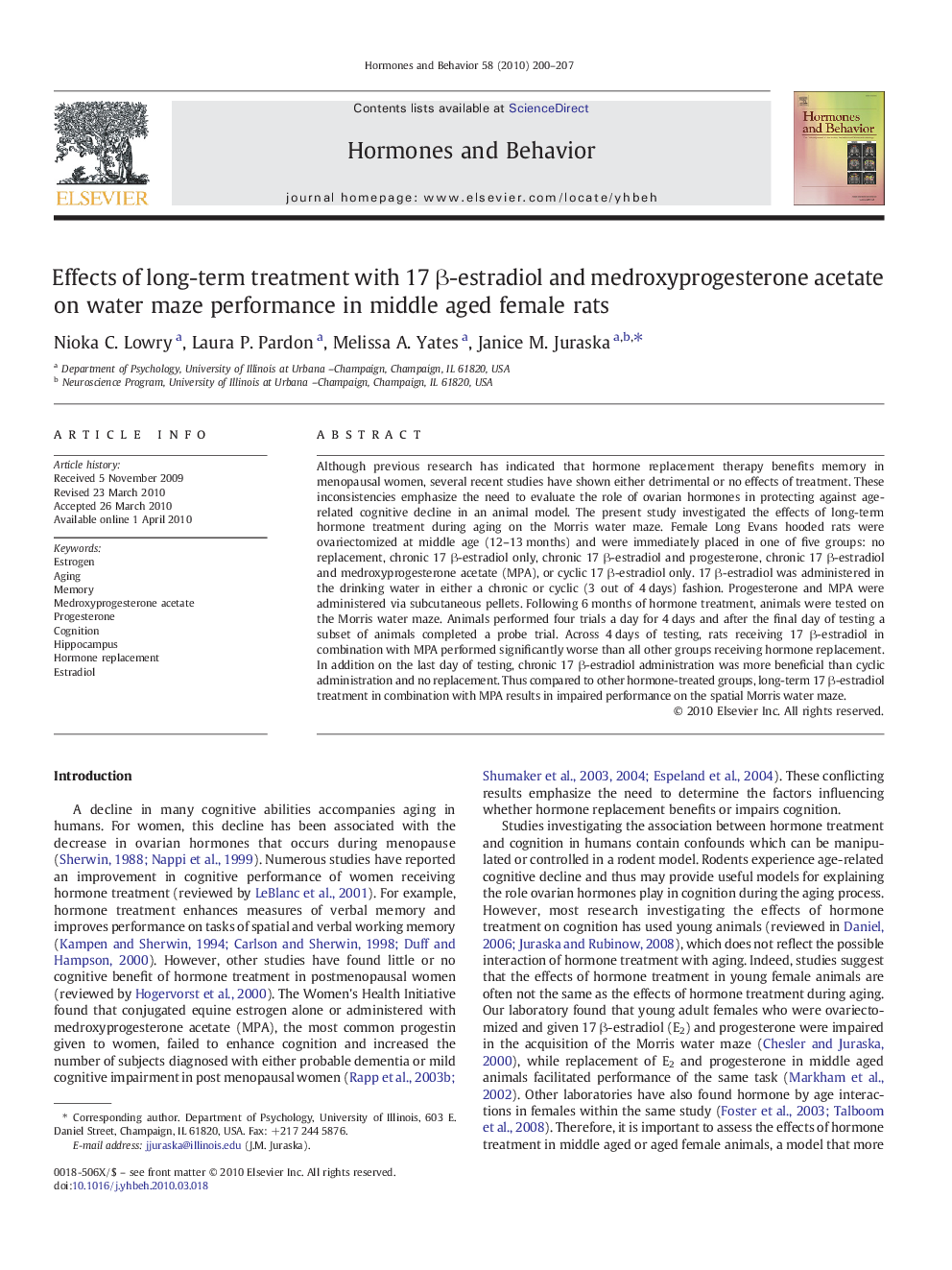| Article ID | Journal | Published Year | Pages | File Type |
|---|---|---|---|---|
| 324083 | Hormones and Behavior | 2010 | 8 Pages |
Although previous research has indicated that hormone replacement therapy benefits memory in menopausal women, several recent studies have shown either detrimental or no effects of treatment. These inconsistencies emphasize the need to evaluate the role of ovarian hormones in protecting against age-related cognitive decline in an animal model. The present study investigated the effects of long-term hormone treatment during aging on the Morris water maze. Female Long Evans hooded rats were ovariectomized at middle age (12–13 months) and were immediately placed in one of five groups: no replacement, chronic 17 β-estradiol only, chronic 17 β-estradiol and progesterone, chronic 17 β-estradiol and medroxyprogesterone acetate (MPA), or cyclic 17 β-estradiol only. 17 β-estradiol was administered in the drinking water in either a chronic or cyclic (3 out of 4 days) fashion. Progesterone and MPA were administered via subcutaneous pellets. Following 6 months of hormone treatment, animals were tested on the Morris water maze. Animals performed four trials a day for 4 days and after the final day of testing a subset of animals completed a probe trial. Across 4 days of testing, rats receiving 17 β-estradiol in combination with MPA performed significantly worse than all other groups receiving hormone replacement. In addition on the last day of testing, chronic 17 β-estradiol administration was more beneficial than cyclic administration and no replacement. Thus compared to other hormone-treated groups, long-term 17 β-estradiol treatment in combination with MPA results in impaired performance on the spatial Morris water maze.
